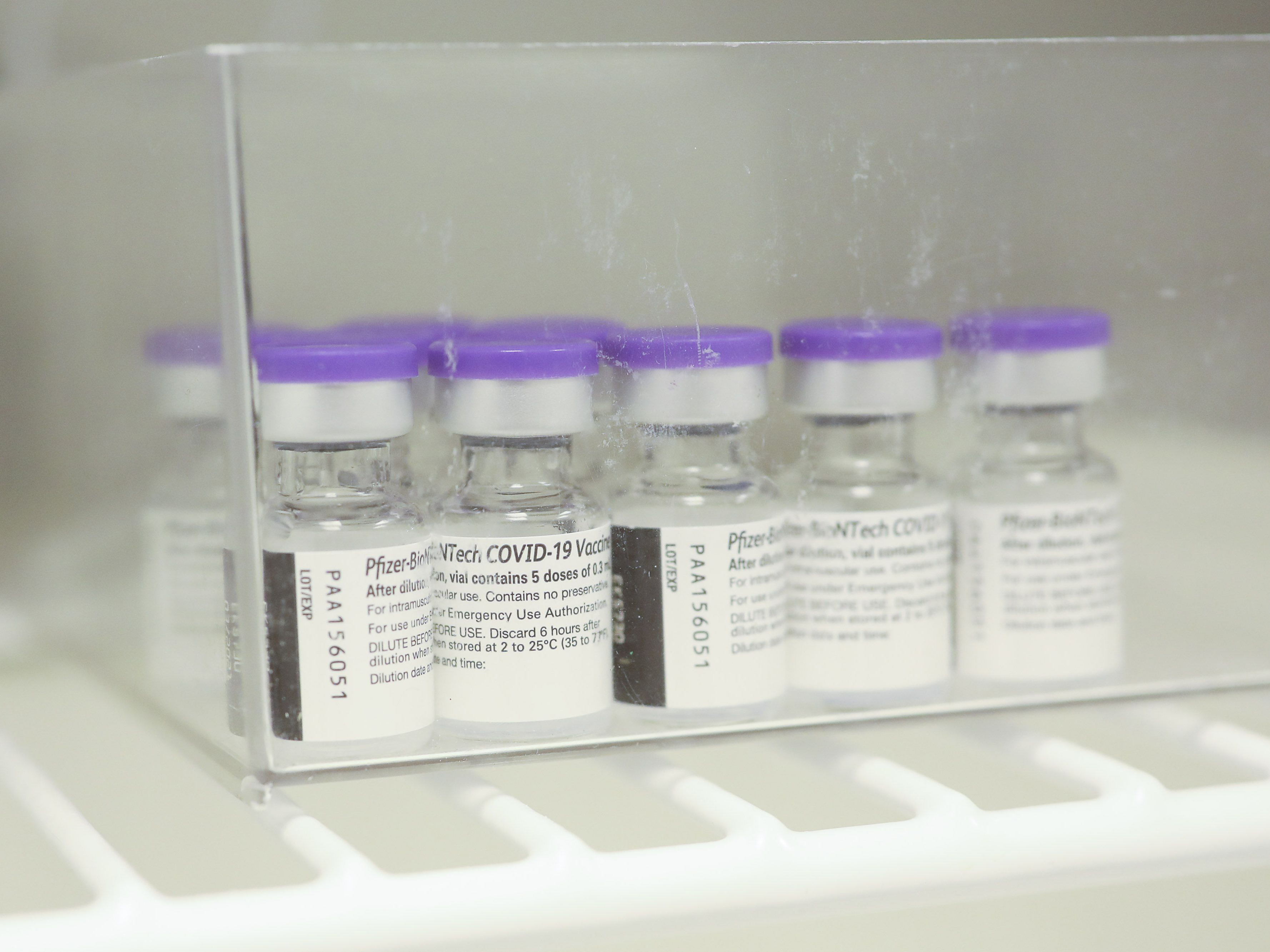
As pharmaceutical companies entrust contract manufacturers to scale production of COVID-19 vaccines, they're faced with heightened challenges of maintaining safety and efficacy — on top of the already challenging nature of a time- and temperature-sensitive supply chain.
A trustworthy, effective cold chain built on a blockchain ledger would allow vaccine producers to contract out all or parts of manufacturing and distribution while ensuring that the final product arrives to communities safely. Here are four reasons why blockchain is ideal for advancing COVID-19 vaccine production and time-sensitive delivery.
Lower Costs, Fewer Recalls
As COVID-19 vaccine raw materials are sourced, critical quality attributes are defined, and manufacturing process parameters are provisioned, vaccines are subsequently manufactured, stored and shipped between suppliers, contract manufacturers, and distributors. Environment control within required ranges across the chain of custody is critical. At any point across the value chain, if there is an excursion outside of these ranges, the quality, efficacy and safety of the vaccine can be impacted. When this happens, time-sensitive shipments valued in the millions can be delayed or even lost as the excursion is investigated. This could result in supply interruptions and ultimately, patient safety. With limited supplies of COVID-19 vaccines, these risks must be avoided.
To mitigate these risks, blockchain can provide real-time monitoring of a company’s cold chain, while securing it against fraud. As a blockchain is not owned by any single entity and cannot be changed, it is ideal for logging the provenance of raw materials and finished products from production to patient delivery, which ensures real-time location, supply and production data is always available. This ultimately reduces recalls and lowers costs as a potentially bad batch can be easily identified and removed without affecting the full shipment.
Lifecycle Visibility
Blockchain is ideal for recording the adherence to critical quality requirements and manufacturing process parameters from production line to clinical site across the full product lifecycle. The ability to trace each stage of the product lifecycle and the provenance of materials, enables suppliers to anticipate demand and medical facilities to track when shipments are arriving or delayed. Hospitals, healthcare providers and governmental organizations could then create a distribution plan based on incoming supply and demand constraints. When received, medical facilities could easily verify the vaccines are authentic and confirm they were kept in the proper environment since leaving the production site with immutable chain of custody evidence across the entire value chain. In the case of an adverse event, distributors and healthcare providers could also be notified quickly and could take action to remove affected vaccines.
Blockchain would ultimately help streamline vaccine distribution, ensure efficacy, quality, safety and improve trust for patients receiving the vaccine, since each step would be verified.
Tamper-Proof Trail
Blockchain offers the real-time environmental data that guarantees adherence to product design, quality specifications and compliance with critical market authorization specific regulations. As each vaccine requires a specific stopper and syringe, these available parts, outgoing parts and incoming parts logged on blockchain would ensure manufacturers could account for inventory accordingly, only producing enough vaccines for how many stoppers and syringes are available so nothing goes to waste.
Blockchain would also track when vaccines are warehoused, shipped, picked up and transported, so all parties can ensure the correct process is followed throughout its journey. Since blockchain is immutable and cannot be tampered with, all parties can ensure vaccines were stored and handled properly and data was not manipulated along the way.
Trust and Transparency
Knowing where vaccines are in the development, sourcing, manufacturing, warehousing and delivery process preserves trust as all involved trading partners can confirm actions and activities in real time. Leveraging blockchain allows suppliers, manufacturers, distributors and medical personnel to share a common immutable database, providing accurate information across the value chain, while holding all parties accountable and establishing evidentiary proof across the chain of custody.
This eliminates the possibility of counterfeit raw materials and vaccines entering the value chain while providing the highest level of accuracy and accountability in tracking raw materials and vaccines.
As COVID-19 vaccine makers face the challenges of a complex and expensive production process, a short shelf life, environmental constraints and intense government regulation, they also must do everything in their power to maintain the provenance, efficacy, quality and safety of vaccines and ensure all doses reach their destination. If doses are not tracked properly across the supply chain, bad batches or overproduction could lead to entire or partial shipments being disposed of, or counterfeit vaccines could easily enter the supply chain. This ultimately leads to less people vaccinated and slower progress to end the pandemic.
Leveraging blockchain to monitor the COVID-19 vaccine supply chain provides critical chain of custody information and evidentiary proof that vaccines were sourced, manufactured, transported, and stored properly, creates a tamper-proof audit trail, improves traceability, helps balance supply against anticipated demand, and provides critical transparency among involved parties, which ultimately leads to reduced recalls and minimized risks.
Sachin Misra is managing director of pharma for Kalypso.







